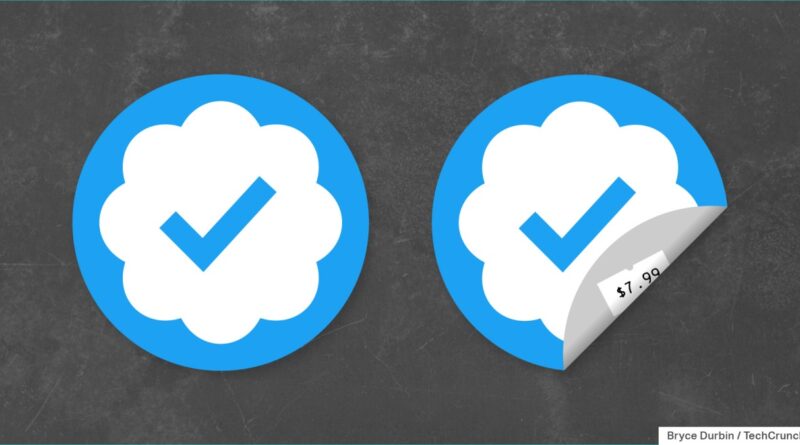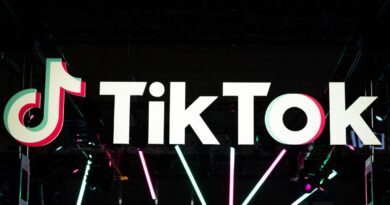Sex workers explain why blue check stigma and #BlockTheBlue aren’t so straightforward
Not every new blue check on Twitter is a fan of Elon Musk.
As Twitter’s iconic blue check shifts from a badge of legitimacy to a signal that you pay the company eight dollars a month, some high-profile users have campaigned to #BlockTheBlue. In other words, they want to block all users who subscribe to Twitter Blue by using automated scripts and plug-ins.
The idea behind the movement is that if someone is willingly giving Twitter a monthly payment for a blue check, they probably align with the so-called “anti-woke” politics that Musk and his confidants routinely espouse. Harvard Cyberlaw Clinic instructor Alejandra Caraballo posted a blocklist of Blue Verified accounts on GitHub, while beloved meme account dril took such a strong enough stance on #BlockTheBlue that it seems Elon Musk gave him a blue check to troll him.
There is some merit to this: Crypto spam accounts have leveraged Twitter Blue to boost their own visibility, while others are simply posting vile takes. But for some online creators and sex workers, Twitter Blue is essential to surviving on the platform, even if they don’t support Musk’s changes to Twitter.
“People are motivated to pay for software based on use case, not political leaning,” explained Ashley, a sex worker and researcher who prefers not to share her full name.
For sex workers, who have been repeatedly deplatformed, shadowbanned and cut off from life-sustaining income sources, eight dollars is worth the safety net that Twitter Blue provides. Aside from a blue check — which some subscribers don’t even want, since it now carries a stigma — Twitter Blue offers prioritized search rankings, SMS two-factor authentication and longer video uploads.
“I do think we can point to the concrete evidence that having Twitter Blue will boost your visibility,” said Dr. Olivia Snow, a dominatrix who researches sex work and tech policy at UCLA’s Center for Critical Internet Inquiry. For sex workers who are often subject to shadowbanning and deprioritization in search results, the automatic boost from Twitter Blue is hugely important.
Along with Reddit, Twitter is the only major social platform that allows users to upload explicit sexual content. For sex workers, that makes Twitter essential to direct potential customers to their paid offerings on sites like OnlyFans.
“Twitter really is the primary advertising venue at this point for sex workers,” Snow told TechCrunch.
The spreadsheet that #BlockTheBlue proponents are using lists nearly 400,000 accounts. Ashley said that she pulled a smaller list of 300 accounts, which she analyzed for insight about who is using Twitter Blue.
“Nothing is standing out,” she told TechCrunch. “It’s not a targeted list in any way. The only thing I could say is among the most followed accounts, a lot of them are people of color and non-English accounts.”
TechCrunch repeated a similar experiment, pulling 50 random names from the spreadsheet. About half of these users were non-English speakers, and five openly expressed right-wing or anti-LGBTQ views — but they didn’t appear to be deliberately harassing anyone. Still, these sample sizes are quite small compared to the hundreds of thousands of users with Twitter Blue.
“Among English language accounts, I also feel it’s mostly creators, people who might want to upload video longer than two minutes, fan accounts or independent journalists,” Ashley said. She pointed to Unicorn Riot, a left-wing media outlet, which subscribes to Twitter Blue so that it can upload full clips of its video journalism.
Amanda Golka, a YouTuber who goes by Swell Entertainment, subscribed to Twitter Blue to get access to text-based two-factor authentication. She told TechCrunch that once Twitter made this a paywalled feature, she encountered errors that prevented her from signing up for three different types of app-based two-factor authentication, which is not paywalled. Sure enough, she got hacked. When she finally got her account back, she subscribed to Twitter Blue.
“I’m immediately going to put in my description box, ‘I’m not happy I have Twitter Blue either,’” Golka said in a YouTube video. “I just want two-factor authentication.”
For creators like Golka, the enduring issues with enabling app-based two-factor authentication make Twitter Blue essential. Without it, she feels vulnerable to losing her account again, and worries that a hacker may try to scam her followers.
Sex workers are also worried about bad actors scamming their followers. Even though the blue check has lost much of its longstanding meaning, Twitter has taken some steps to make it harder (but not impossible) to impersonate people. So, having a blue check can still signal legitimacy to potential clients. Twitter removes a user’s blue check if they change their display name, for example. Some reluctantly verified users have taken advantage of this feature by periodically changing their name so that they can hide their check.
“Some sex workers feel more motivated to get [the blue check] to make sure that they get it before others do,” Ashley told TechCrunch. “We know from feedback from clients that it does help them distinguish themselves from catfishes.”
Ashley said that sex workers’ clients are sometimes scammed when hackers pretend to be them and ask for money.
“As much as meme accounts also have catfishes, sex workers are the ones whose fans get bilked out of thousands of dollars,” said Ashley. “This takes tens of thousands of dollars out of sex workers’ pockets.”
The use cases for Twitter Blue are variable, so sex workers consider it a form of censorship when potentially well-meaning figures support #BlockTheBlue. While some argue that a payment to Elon Musk is a tacit form of support, Snow says that we’re all lining Musk’s pockets by even using Twitter — and Twitter Blue has barely made a dent in the platform’s bottom line, anyway.
“We have to make money to live and eat, and Twitter is by far the biggest driver of traffic to OnlyFans,” said Snow. “What else are we supposed to do? We’re not allowed on other platforms.”
Sex workers explain why blue check stigma and #BlockTheBlue aren’t so straightforward by Amanda Silberling originally published on TechCrunch




